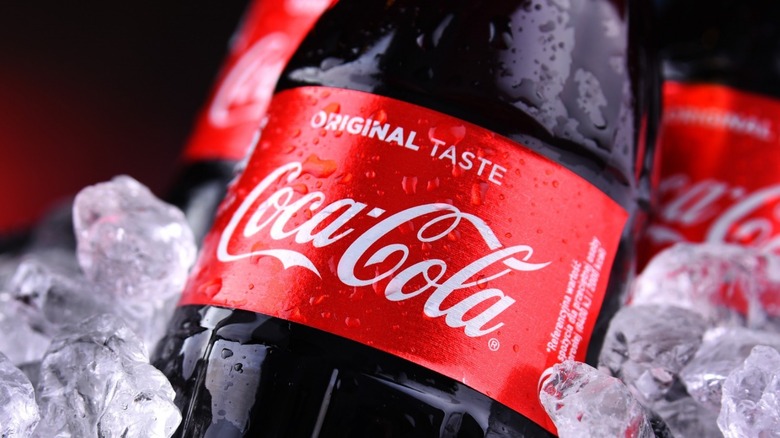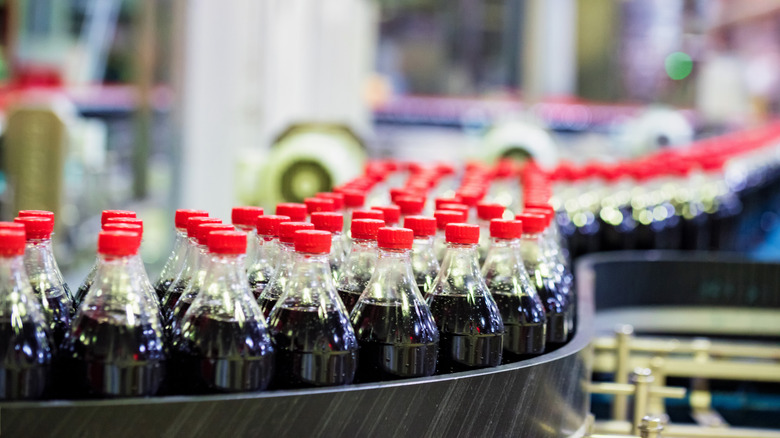Coca-Cola's CEO Revealed Why So Many Products Have Been Discontinued
In October 2020, Coca-Cola went on the warpath. First, they took away Zico, their coconut water drink. Then, they discontinued Tab, a low calorie offering. 500 other brands were facing a similar purging. It seemed no product was too sacred.
The discontinuations weren't conducted at random, though. "In the end, it's a Darwinian struggle for space in the supermarket or in the convenience store," James Quincey, the CEO of Coca-Cola and killer of beverages explained, to CNN. Put bluntly, if brands aren't competitive against non-Coke products, they will lose shelf space. It's better, then, to discontinue the products that will fail anyway and focus on maximizing Coca-Cola's physical presence in the supermarket. In other words, stores will only sell bottles that sell, and Coke wants to ensure that it's always their bottles that are being sold.
This need develops into an urgency when you realize that, as the Journal of the Academy of Nutrition and Dietetics did in September, that soft drink sales declined significantly between 2003 and 2016. This fad, as Reuters reports, continued into 2017 as more and more people want to have a healthier diet. So, Coke has to direct more resources away from flagging products into developing new ones or redesigning old ones to address this trend.
But why all at once?
Most people can probably accept that a company will do away with products that don't earn their keep. But why were they snapped away all at once, Thanos style? Surely, there had to be a reason.
There was. And it was the same reason for most of the bad things everyone dealt with in 2020 and 2021 — the COVID-19 pandemic. Quincey told CNN that for years he had been trying to weed out some of Coca-Cola's products. But since the company as a whole was doing well, higher-ups resisted. They figured that the all the products had to come together in some kind of equation which would fall apart with the slightest tinkering.
But then, issues like how Australia's supply of artificial sweeteners used in no-sugar Coke drinks had been disrupted by the pandemic (per News.com.au). They received the sweeteners from China which was locking down to constrain the disease. A secondary issue, which a Research and Markets report covers, is that the trend away from soft drinks continued as people turned to alcohol to cope with the stress.
During all this, Quincey said, "I saw my opportunity." Higher-ups would accept most things for a stabilized company. So, Quincey went hacking away at the portfolio. He hasn't looked back.

